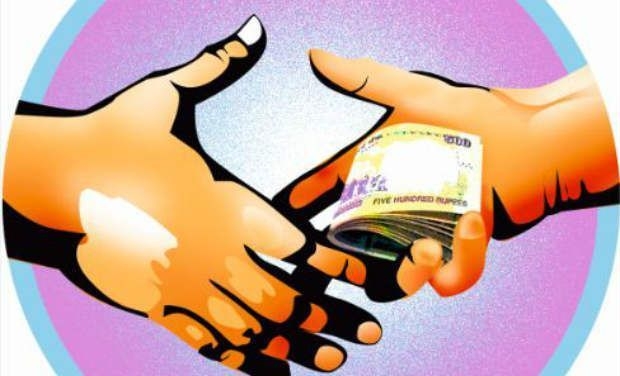
Chennai: What has started off as small exchange of greetings with a box of sweet has over the period of time had gone larger in size and value with commitment for giver… and expectations from receiver… increasing enormously in value of Diwali gifts day by day that has put the Companies management in a fix, as the modern day law terms it as bribe.
While the govt has woken up and issued a diktat not to receive any Diwali gifts from Corporates this year, the private companies are expected to take a call on it soon as they are answerable to the new international law and audit comities questions.
Every year public sector bank and insurance companies would hire cabs to transport Diwali gifts, ranging from the humble dry fruit boxes to household goods and bed linen and park it outside the department of financial services on Parliament Street. The car numbers would then be distributed to clerical and security staff who would go and collect their boxes.
But following a government diktat that banned the state-run finance companies from distributing Diwali gifts, the taxis are missing this year. Except for a Delhi-based bank, which tried its hand at doling out the festival goodies, there has been no transgression, at least officially. Even senior officers are not inundated with hampers from banks at their home.
For some banks, however, its business with a bit of a difference. Instead of bulky baskets often containing a Ganesha idol or chocolates and, occasionally, a bottle of wine, gold and silver coins in small packets have made their way to some babus’ offices.
While this was the case with govt banks, the private MNCs and international banks, which are governed by various international laws and anti bribery acts, are having tough time, unable to determine whether the Diwali gifts come under a gift or a bribe.
Some months ago, the communication department of a multinational bank faced a strange dilemma. The bank planned to distribute some conference-related material on 8GB pen drives but the compliance department had raised a red flag, stating that the rewritable drives could be construed as a bribe.
The incident highlights the dilemma faced by MNCs over Diwali gifts, considering that they are subject to strict anti-bribery laws globally and even stricter compliance departments. Given the level of subjectivity in the matter, many of them are turning to management consultants for advice. “We are working with over 50 companies, helping them design code of conduct. This is both in terms of bringing in and tweaking them for India, because what is accepted as entertainment in India may not be accepted globally,” said Mukul Srivastava, partner, fraud investigation and dispute services at Ernst & Young.
The code of conduct is a key document for compliance, HR and legal departments and a very important part of the code is defining gift and entertainment policy. For multinationals, this is a sensitive issue as laws – such as the Foreign Corrupt Practices Act in the US and the UK Bribery Act of 2010 – control actions of companies not just at home but also internationally in emerging markets.
According to Srivastava, there is a four-way test to determine whether a gift can be construed as a bribe or not. The first is the value, which has to be relative to India. “Companies have to define their own threshold and most companies define a separate threshold for India. A $100 gift might be acceptable internationally but, in some markets like India, Rs 6,000 might be seen as too high,” he said.
The second factor is whether the gift is an attempt to influence someone. “Quite often, to define the fine line between a gift and a bribe, you must ask: Do I get something in return?” This part is slightly judgmental as the receiver of the gift might not be immediately in a decision-making position, but six months later he might be.
Then is the gift given only to a select few? Finally, the one way companies can keep themselves in the clear is by ensuring uniformity in their gifts. “If you are giving iPods or Rolex watches to 10 people and a pen drive to 1,000 people, I would say that is a potential issue,” said Srivastava.
Another way of mitigating the risk of crossing the line is to standardize gifts in the form of company-branded merchandise across the board without differentiating. The other way companies can ensure that their officials do not cross the line while gifting public officials is by having the same policy both ways – defining what is acceptable for their employees to receive as gifts.
while the government and MNCs are gearing up for a self regulation. It’s time for the private sector in India also to give a serious look in to this issue and regulate the possible bribery in the name of Diwali gifts. Particularly, the India Media and Entertainment (M&E) industry which is facing huge increase in the level of frauds and risks in their business, as per the recent report from International audit from Earnest & Young, need to get in to a serious act as the increasing value of Diwali gifts, day by day, can turn out be a tool of favorism to please the person who is sitting in a decision makers seat.

















